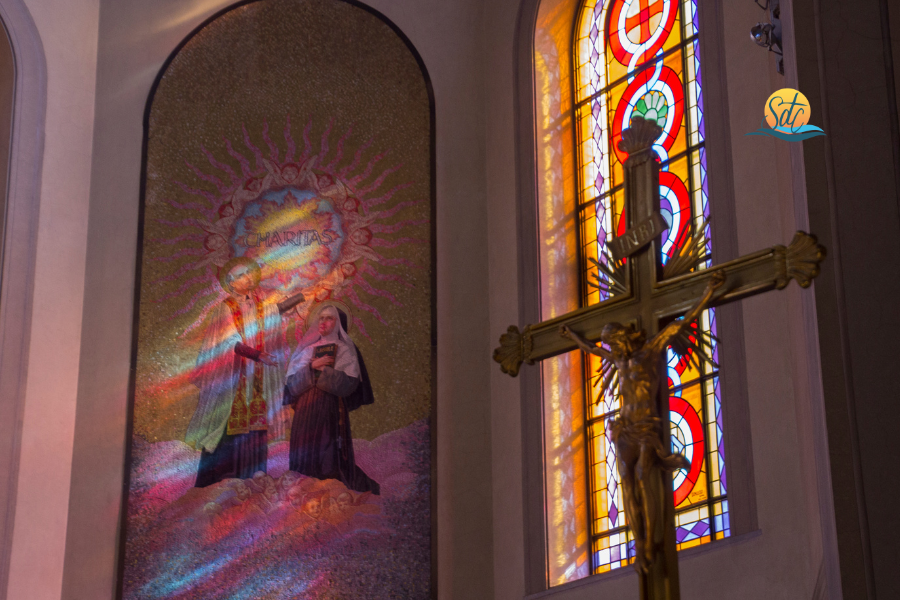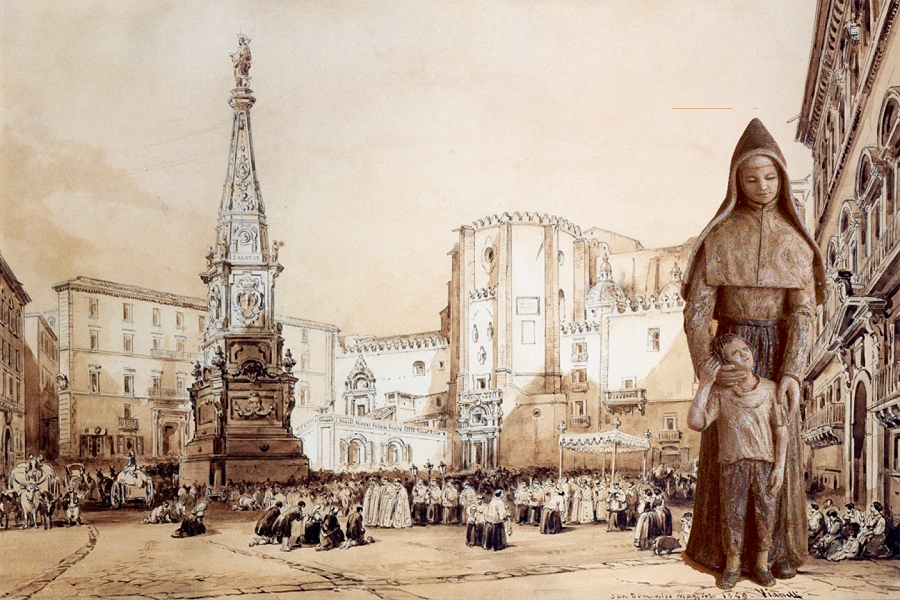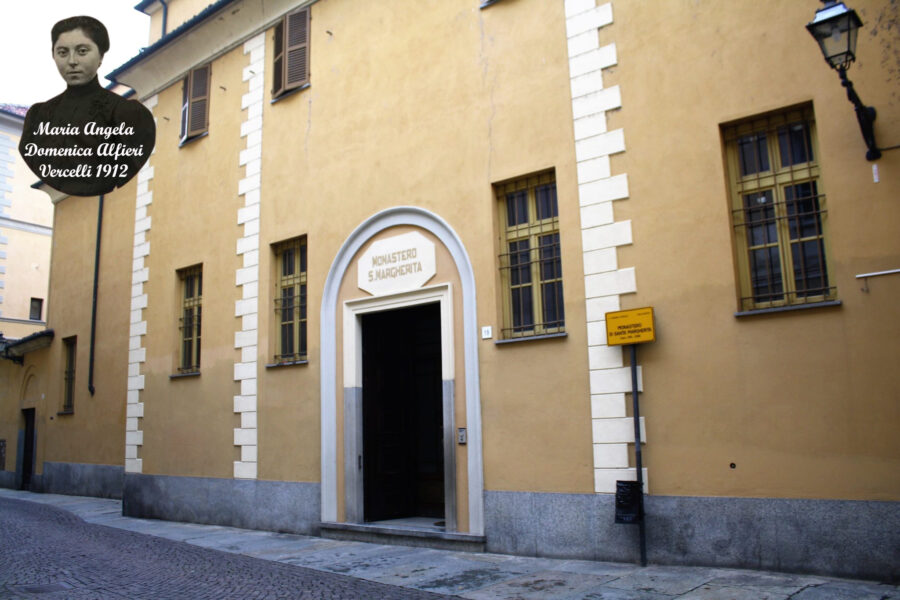The figure of St. Vincent, his legacy carried on by the Fathers of the Mission, the Ladies and Daughters of Charity, the Vincentian laity, also found a very special repercussion in the life of Jeanne Antide, starting with her experience in the Seminary of the Daughters of Charity in Paris.
From that moment, the future Foundress found in the ‘mystic of charity’ a model and an example, a source of inspiration. For the first sisters in Besançon, Jeanne Antide wanted the title ‘Sisters of St Vincent’. Due to Napoleonic decisions, in 1807, the name was changed to ‘Sisters of Charity of Besançon’. But on the occasion of the pontifical approval of the institute in 1820, Mother Thouret regained the much-loved appellation: ‘Sisters of Charity under the Protection of St Vincent de Paul’. Since then, among the Sisters of Charity, there have been countless educational, charitable, pastoral and health works named after St Vincent de Paul.
In the Rule drafted by Mother Thouret for her first Daughters, we find the famous and innovative Rule, from which a new presence of female religious life is born, no longer cloistered, but decidedly close to the poor, the sick, prisoners, soldiers at the front, the insane, lonely and marginalised women. This is how St Vincent wanted it:
‘The Daughters of Charity have for a monastery only the homes of the sick,
for cell a rented room,
for chapel the parish church,
for cloister the streets of the city,
for cloister the obedience,
for grate the fear of God,
by veil the holy modesty.
They make no other profession than that of continual trust in divine Providence
and of the offering of all that they are and all that they do’.
Rightly, in 1885, Pope Leo XIII proclaimed St Vincent de Paul the universal patron of all works of charity. Indeed, his story continues through the great Vincentian Family and through all those who carried on his powerful legacy, which continues to be a source of inspiration for many in the world today.
St. Vincent’s story of charity continues today through the Sisters of Charity of St. Jeanne Antide, who still invoke him as ‘father, protector and teacher of life’.







